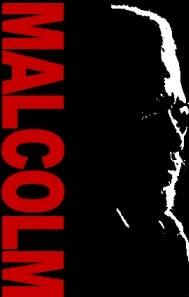|
INTRODUCTION to rethinking malcolm x | ||||
The publication of the new biography of Malcolm X by Manning Marable has become a major event for several reasons: 1. The book was about Malcolm X. 2. Marable died just before the book was published. 3. The main stream media hyped the book to five weeks on the NY Times best sellers list. 4. There was an explosion of reviews, from max positive to condemnation. 5. The debate is being taken up in special issues of several journals and in two anthology book projects. We have decided to gather the relevant material from the web and make it possible to do one stop shopping to engage the material and enter the discourse and debate. We have published our review along with over 160 other reviews you can access from this website. Further we have added links to background material on Manning Marable and video of him presenting his ideas on Malcolm X. Our main purpose in doing this website is actually not about Marable as such, but about where we need to take this debate. The issues that come up in the debate are more general than this book and need serious consideration. The Autobiography of Malcolm X will remain the main book to read, followed by his speeches, to be read and listened to, especially if there is a video to watch. When we forget about this Marable book, the issues that the debate has raised will continue to be burning issues if we are to rebuild the fight for Black liberation that Malcolm X epitomizes. 1. Research: The main mandate for any knowledge being considered is “no investigation, no right to speak.” In other words, in order to know something you have to read, investigate it yourself, and then present your results in an authoritative manner. You have to present proof of what you are talking about. This is a standard for all scholarship. This is what enables us to have a consensus, a meeting of the minds on any given subject, based on the best evidence and the best logic of analysis. Marable fails on this count, unless you believe him just because he says it and you are too lazy to closely examine the footnotes for what evidence is being summarized. Research is more important to rational people than anything else. Again, “no investigation, no right to speak.” 2. Theory: The critical issue of theory is how we sum up our research into logical propositions that explain the world in which we live, and from which we can produce hypotheses that lead on to further research. In the end the fundamental questions for Black liberation begin with these two questions: Who are our friends? And, who are our enemies? The strategic focus is to unite friends to defeat enemies, and for that we need theory. But we need more than just knowledge about “what is.” 3. Ideology: based on our theory and research to sum up what has been and what is, the focus of an ideology extends our concern to what we think “ought” to be. The fundamental ideological question for African Americans has been and is the meaning of freedom. Frederick Douglass raised it during slavery, DuBois raised it during the first half of the 20th century, and Malcolm and King dominated the think of the last half of the 20th century. The cutting edge of this has always been the least among us, the most exploited and oppressed. Unfortunately the Black middle class has always tried to turn the question fo freedom into their issue and that often excludes the masses of people. The last must come first whether you are a Muslim, a Christian or a Marxist. We have much more to say about these concepts but that will take place by you the reader as you deepen the thinking. As we have said for the last 40 years we must “further the analysis and heighten the contradictions.” As Bird laid it down, “NOW IS THE TIME!” |
|||||
